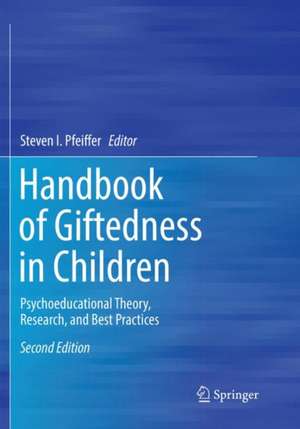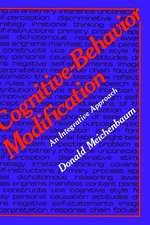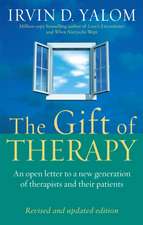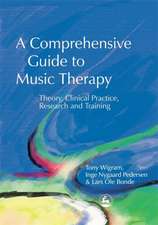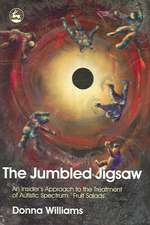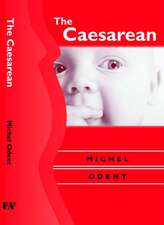Handbook of Giftedness in Children: Psychoeducational Theory, Research, and Best Practices
Editat de Steven I. Pfeifferen Limba Engleză Paperback – 20 dec 2018
| Toate formatele și edițiile | Preț | Express |
|---|---|---|
| Paperback (2) | 570.36 lei 38-44 zile | |
| Springer Us – 4 noi 2010 | 570.36 lei 38-44 zile | |
| Springer International Publishing – 20 dec 2018 | 2063.66 lei 6-8 săpt. | |
| Hardback (2) | 946.90 lei 6-8 săpt. | |
| Springer Us – 5 mar 2008 | 946.90 lei 6-8 săpt. | |
| Springer International Publishing – 25 iun 2018 | 2070.98 lei 6-8 săpt. |
Preț: 2063.66 lei
Preț vechi: 2516.66 lei
-18% Nou
Puncte Express: 3095
Preț estimativ în valută:
395.12€ • 411.45$ • 327.83£
395.12€ • 411.45$ • 327.83£
Carte tipărită la comandă
Livrare economică 15 februarie-01 martie
Preluare comenzi: 021 569.72.76
Specificații
ISBN-13: 9783030083458
ISBN-10: 3030083454
Ilustrații: XI, 374 p. 11 illus., 7 illus. in color.
Dimensiuni: 178 x 254 mm
Greutate: 0.74 kg
Ediția:Softcover reprint of the original 2nd ed. 2018
Editura: Springer International Publishing
Colecția Springer
Locul publicării:Cham, Switzerland
ISBN-10: 3030083454
Ilustrații: XI, 374 p. 11 illus., 7 illus. in color.
Dimensiuni: 178 x 254 mm
Greutate: 0.74 kg
Ediția:Softcover reprint of the original 2nd ed. 2018
Editura: Springer International Publishing
Colecția Springer
Locul publicării:Cham, Switzerland
Descriere
Most leaders in American society recognize that gifted children are among our most precious natural resources. Following the Soviet Union’s launch of the Sputnik in the 1960s, our country focused resources on identifying and nurturing America’s intellectually gifted. Less than a decade later, however, America’s gifted and talented have become an almost neglected special-needs population – for a variety of socio-cultural, political, and economic reasons. Even American psychology has given little attention to the unmet and under-met needs of America’s most promising youth.
The gifted population comprise roughly 5% to 20% of the general population of school-age children – depending on which definition of gifted and talented or which set of diagnostic criteria are applied. The gifted are a significant population, based on their numbers and on their potential to make a real difference in our nation’s future.
A recent survey of international experts in the gifted field published in Professional Psychology: Research & Practice (Pfeiffer, 2001) identified key areas in which professional psychology can play a critically important role in serving the gifted. The article identified specific practice implications for professional psychology, including:
The gifted population comprise roughly 5% to 20% of the general population of school-age children – depending on which definition of gifted and talented or which set of diagnostic criteria are applied. The gifted are a significant population, based on their numbers and on their potential to make a real difference in our nation’s future.
A recent survey of international experts in the gifted field published in Professional Psychology: Research & Practice (Pfeiffer, 2001) identified key areas in which professional psychology can play a critically important role in serving the gifted. The article identified specific practice implications for professional psychology, including:
- Assuming a leadership role in the screening and identification of gifted children.
- Serving as consultants in promoting talent development in the schools and in work with families of the gifted.
- Providing counseling services to the gifted, as well as their parents, who are in need of psychotherapeutic intervention.
Cuprins
Chapter 1. History of Giftedness: Paradigms and Paradoxes.- Chapter 2. An International View on Gifted Education: Incorporating the Macro-Systemic Perspective. Chapter 3. Theories and Conceptions of Giftedness.- Chapter 4. The Social and Emotional World of the Gifted.- Chapter 5. Expertise and Individual Differences.- Chapter 6. Creativity.- Chapter 7. Emotional Intelligence (EI) and the Gifted.- Chapter 8. Gender and Talent Development of Gifted Students.- Chapter 9. The Role of the Family in Talent Development.- Chapter 10. Looking Back and Looking Forward: Curriculum for Gifted and Talented Students.- Chapter 11. Applicable Federal and State Policy, Law, and Legal Considerations in Gifted Education.- Chapter 12. Assessment of Giftedness.- Chapter 13.Recruiting and Retaining Underrepresented Gifted Students.- Chapter 14. Perfectionism.- Chapter 15. Depression, Suicide, and Giftedness: Disentangling Risk Factors, Protective Factors, and Implications for Each.- Chapter 16. Understanding Underachievement.- Chapter 17. Counseling the Gifted: Current Status and Future Prospects.- Chapter 18. Career Counseling for the Gifted and Talented: A Lifespan Development Approach.- Chapter 19. Ethical and Professional Practice Issues in the Provision of Educational Services to Gifted Students.- Chapter 20. Identifying and Providing Evidence-Based Services for Twice-Exceptional Students.
Notă biografică
Steven I. Pfeiffer, Ph.D., is a Professor at Florida State University. Previously, he was a Professor at Duke University, where he served as Executive Director of the Duke University Talent Identification Program (Duke TIP). Dr. Pfeiffer is an internationally recognized expert in the gifted field. According to Alan Kaufman, Dr. Pfeiffer is “among a small group of the world’s leading experts in the gifted field. He is an unusually articulate spokesperson on the varied topics that comprise the broad domain of gifted education and gifted assessment.” Dr. Pfeiffer twice testified at the White House before the National Task Force on Health Care Reform. In 2012, he was a Distinguished Visiting Scholar at the National Institute of Education in Singapore. He has an active clinical practice and conducts workshops in the United States and internationally. Dr. Pfeiffer is lead author of the Gifted Rating Scales (Pearson Assessment, 2003), the most widely used rating scale in gifted identification. His most recent books include, Serving the Gifted (Routledge, 2013); Essentials of Gifted Assessment (Wiley, 2015); and The Social and Emotional Development of Gifted Children (Prufrock Press, 2015), co-edited with Maureen Neihart and Tracy Cross. He is Editor-in-Chief of the APA Handbook of Giftedness and Talent (Washington, DC: APA Books; in press).
Textul de pe ultima copertă
The second edition of this handbook incorporates the latest theory, research, and best practices in serving gifted and talented children and adolescents. The expanded and updated edition explores new and emerging ideas, themes, and findings, including the latest research from neuroscience and developmental psychology. It incorporates expanding conceptions of giftedness among researchers as both general and domain-specific as well as the value of viewing giftedness from a developmental perspective. Chapters discuss a wide range of topics including assessment, the role of family in nurturing talent, and issues specific to subgroups such as disadvantaged gifted children and gifted children with special needs. In addition, the handbook provides guidelines for creating relevant interventions and designing curriculum for this diverse population.
Topics featured in the Handbook include:
· The social and emotional world of the gifted.
· Emotional intelligence and the gifted.
· Perfectionism in gifted students.
· Depression and suicide among gifted children.
· Career counseling for the gifted and talented.
· Best practices in the identification and assessment of the gifted.
The Handbook of Giftedness in Children, Second Edition is a must-have resource for researchers, clinicians and related professionals, policy makers, and graduate students across such interrelated disciplines as child and school psychology, social work, and education policy and politics as well as special and general education, public health, school nursing, occupational therapy, psychiatry, school counseling, and family studies.
Topics featured in the Handbook include:
· The social and emotional world of the gifted.
· Emotional intelligence and the gifted.
· Perfectionism in gifted students.
· Depression and suicide among gifted children.
· Career counseling for the gifted and talented.
· Best practices in the identification and assessment of the gifted.
The Handbook of Giftedness in Children, Second Edition is a must-have resource for researchers, clinicians and related professionals, policy makers, and graduate students across such interrelated disciplines as child and school psychology, social work, and education policy and politics as well as special and general education, public health, school nursing, occupational therapy, psychiatry, school counseling, and family studies.
Caracteristici
Encompasses the latest theory, research, and best practices in serving gifted and talented children and adolescents
Examines giftedness and the education of high-ability students from developmental psychology and neuroscience perspectives
Discusses the nature of giftedness and how to promote the skills of brightest students
Explores multicultural and international differences in giftedness and implications for practice
Examines giftedness and the education of high-ability students from developmental psychology and neuroscience perspectives
Discusses the nature of giftedness and how to promote the skills of brightest students
Explores multicultural and international differences in giftedness and implications for practice
